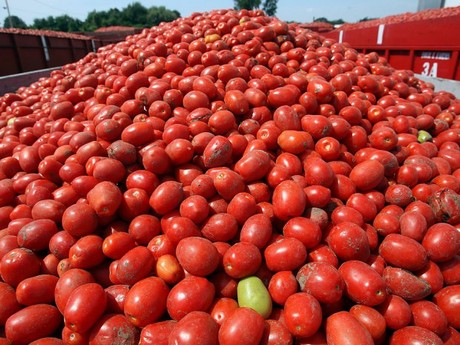 tario investors announced last week they plan to run the century-old plant and take over producing and distributing tomato juice for Heinz in the Canadian market. The move spared 250 of the 740 workers slated to lose their jobs in Leamington, Ontario, widely known as the tomato capital of Canada.
tario investors announced last week they plan to run the century-old plant and take over producing and distributing tomato juice for Heinz in the Canadian market. The move spared 250 of the 740 workers slated to lose their jobs in Leamington, Ontario, widely known as the tomato capital of Canada.Under the Canadian Agricultural Products Act, tomato juice must be made from whole tomatoes and not from concentrated paste as it is at Heinz plants in the U.S.
“The tomatoes are going to go to the plants that have the low production costs, when you get right down to it,” Buffett said in November at an event in Detroit. “It’s really a question of having an unprofitable plant and concentrating production in a more profitable plant.”
Highbury said in a Feb. 27 statement it plans to license Heinz products as a co-packer. The venture wants to finalize the agreement in the next few weeks to give tomato farmers time to prepare for the juice-making season, according to the statement.
Heinz is glad Highbury stepped in with the deal, said Michael Mullen, a spokesman for the Pittsburgh-based company. He declined to comment on whether Heinz could make juice from fresh tomatoes at another plant or how the regulation affected the company’s decision.
The regulatory details differ between the U.S. and Canada when it comes to other beverages, Holley said. Drinks south of the border must list the percentage of juice they contain, while Canadian drinks don’t, he said.
“In the case of the tomato juice, the Canadian regulation is more stringent, in the U.S. the drink regulations are more stringent.”





